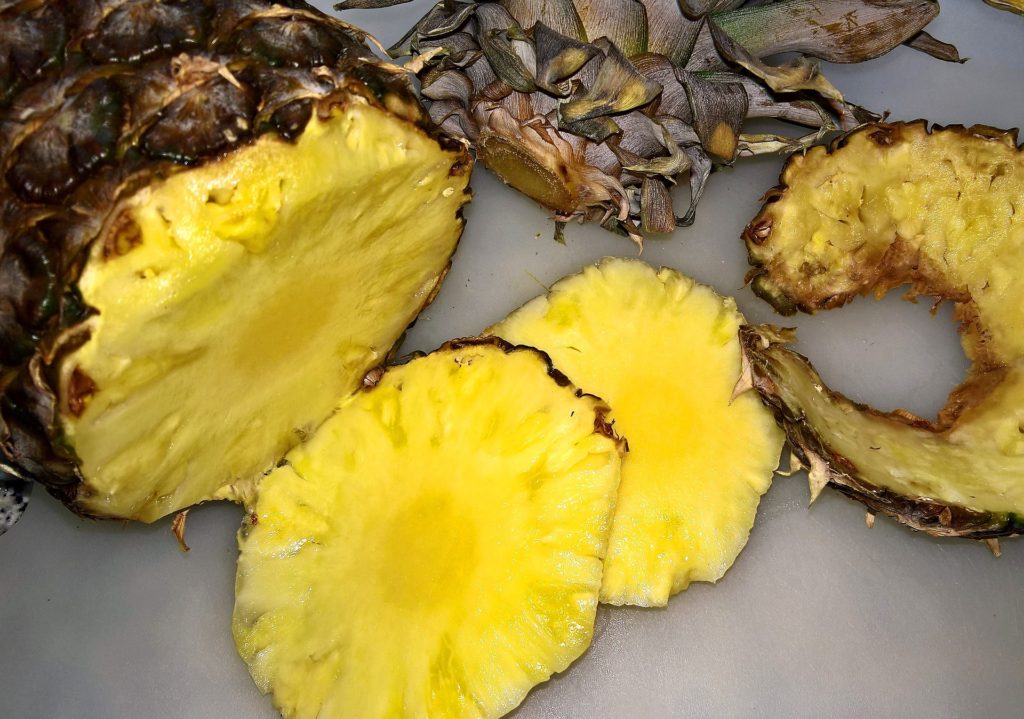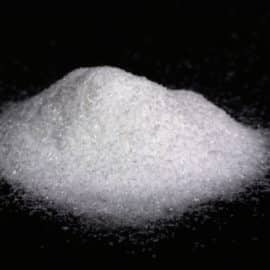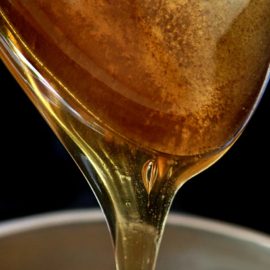
Summer, the hottest season of the year, has arrived again. It’s that time to visit the beach, go on a picnic, or join a sports fest. These activities sure are fun, especially for the kids. However, they can be exhausting as the summer heat raises your body temperature. To cool your body down and reduce fatigue, nothing beats eating summer fruits. They provide instant energy and rehydrate your body. In tropical countries, mangoes, papayas, bananas, watermelons, and pineapples are popular choices. Pineapples are particularly at their best quality during the summer—sweetest and juiciest.
You might also like: Ethylene And Ripening In Fruits And Vegetables
What sets pineapples apart from other fruits is that they give that burning or stinging sensation when you bite on them. But this is completely a normal thing for pineapples, though.
Why does pineapple hurt your tongue anyway?
PINEAPPLES CONTAIN BROMELAIN
All living things have special proteins that we call enzymes. These enzymes are catalysts that speed up various processes in order to sustain life. In humans, their functions include muscle growth, digestion of food, hormone production, cell repair, and detoxification.
Enzymes have similar roles in fruits and vegetables—particularly in growth and development. As biological catalysts, they aid in speeding up fruit ripening. A good example of enzyme is polyphenol oxidase (PPO) in fruits such as bananas and papayas. PPO causes cut fruits to turn brown once exposed to oxygen. This is where PPO is a problem as it causes a significant amount of food waste.
Bromelain, an enzyme exclusive to pineapple, hurt us in another way—by hurting our tongue. Bromelain breaks down protein. So if you feel tingling, burning or irritating sensation on your tongue or lips, that is bromelain on duty. This is why some people pineapple a flesh-eating fruit. The good thing is that the soreness does not linger for long as our tongue can rebuild those amino acids, the building blocks of protein.
But this soreness only occurs in fresh pineapples. To enjoy pineapples with less soreness to feel, stay away from the stem and the core. These parts, especially the stem, are where the enzyme is more concentrated.
Cooking is a much better way to reduce the soreness in pineapples though. Processed pineapples like those canned have little enzyme activity. This is because bromelain is heat-sensitive and easily denatured at elevated temperatures.

This 2010 Thai study showed the heat stability of bromelain obtained from smooth Cayenne pineapple, a variety most common in stores in the United States. Enzyme extract was exposed to temperatures of 40-80°C for 0 to 60 min. Incubation at 40°C for 60 minutes showed no loss of bromelain enzyme activity, whereas 83% of activity remained at 50°C. Incubation at 80°C for 8 min almost completely inactivated the enzyme activity.
BROMELAIN AS MEAT TENDERIZER
Bromelain’s ability to break down protein has its benefits though. In the culinary world, bromelain, along with papain, an enzyme present in papaya, is a popular meat tenderizer. So yes, contrary to popular belief, pineapple is not just for imparting flavor to meat. To use fresh pineapples as a meat tenderizer, add it in the marinade and marinade the meat for 1 to 2 hours, depending on the size of the meat. This period is sufficient to break down the tough fibers of the meat. Knowing how long to marinate the meat using pineapple is important. Too long will make the meat into mush and affect the taste and color.
Further reading: How Do Fruit Enzymes Tenderize Meat?
Again, bromelain is a heat-sensitive enzyme so do not use canned pineapples for tenderizing meat. Although stem bromelain is stable at temperatures between 40°C (104°F) to 60°C (140°F), where most enzymes are denatured. Temperatures higher than this range will make the enzyme ineffective at doing its job.
No pineapple available? Bromelain is also commercially available in powdered form. Most bromelain powder in the market is extracted mostly from the stem of pineapple, where it is highly concentrated. Extraction of bromelain is done through centrifugation, ultrafiltration, and lyophilization. This work further explains the process of separation and purification of bromelain from pineapple extract.
Similar to using fresh pineapple, powdered bromelain can be added to marinade or directly sprinkled on raw meat.


